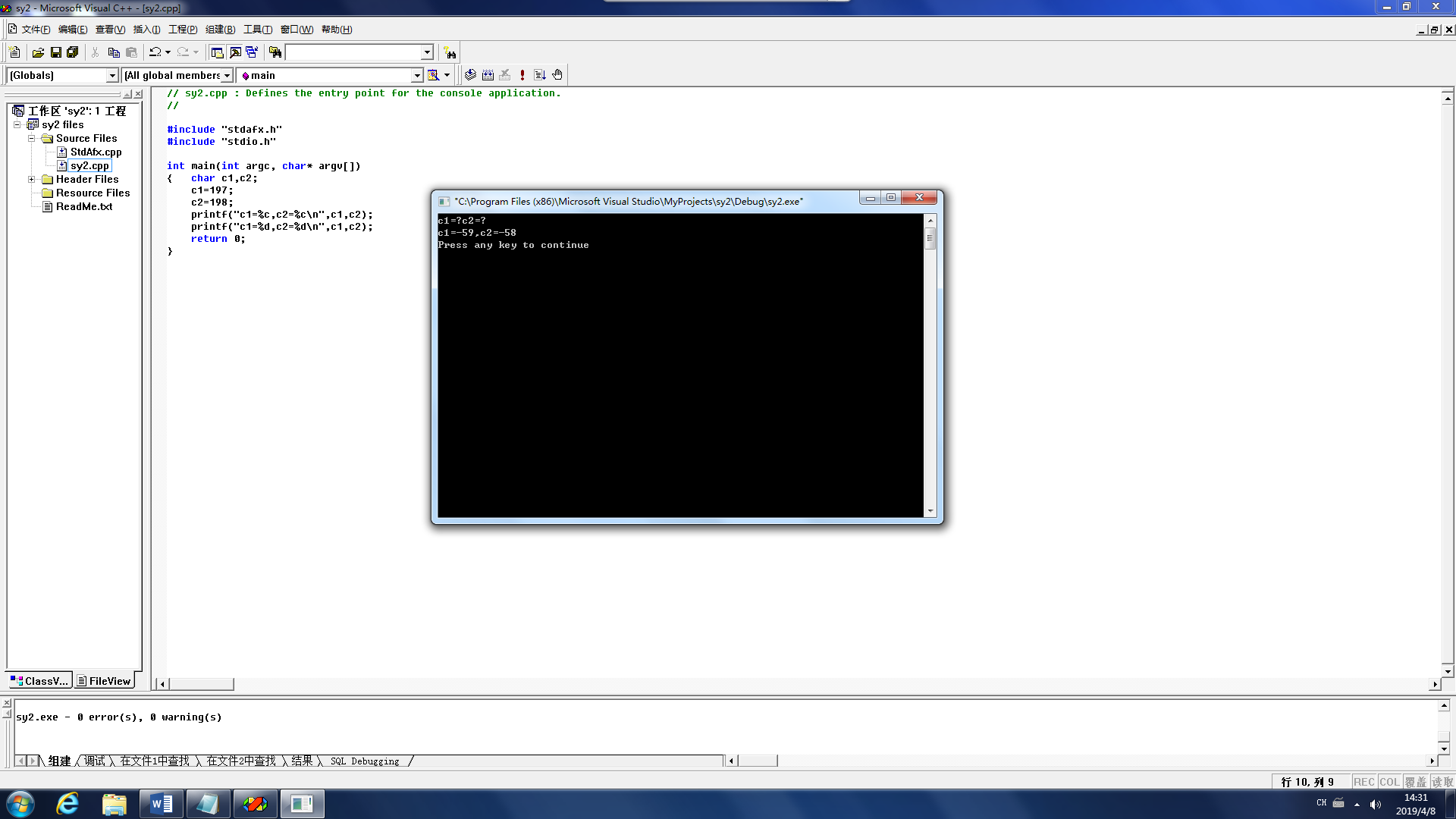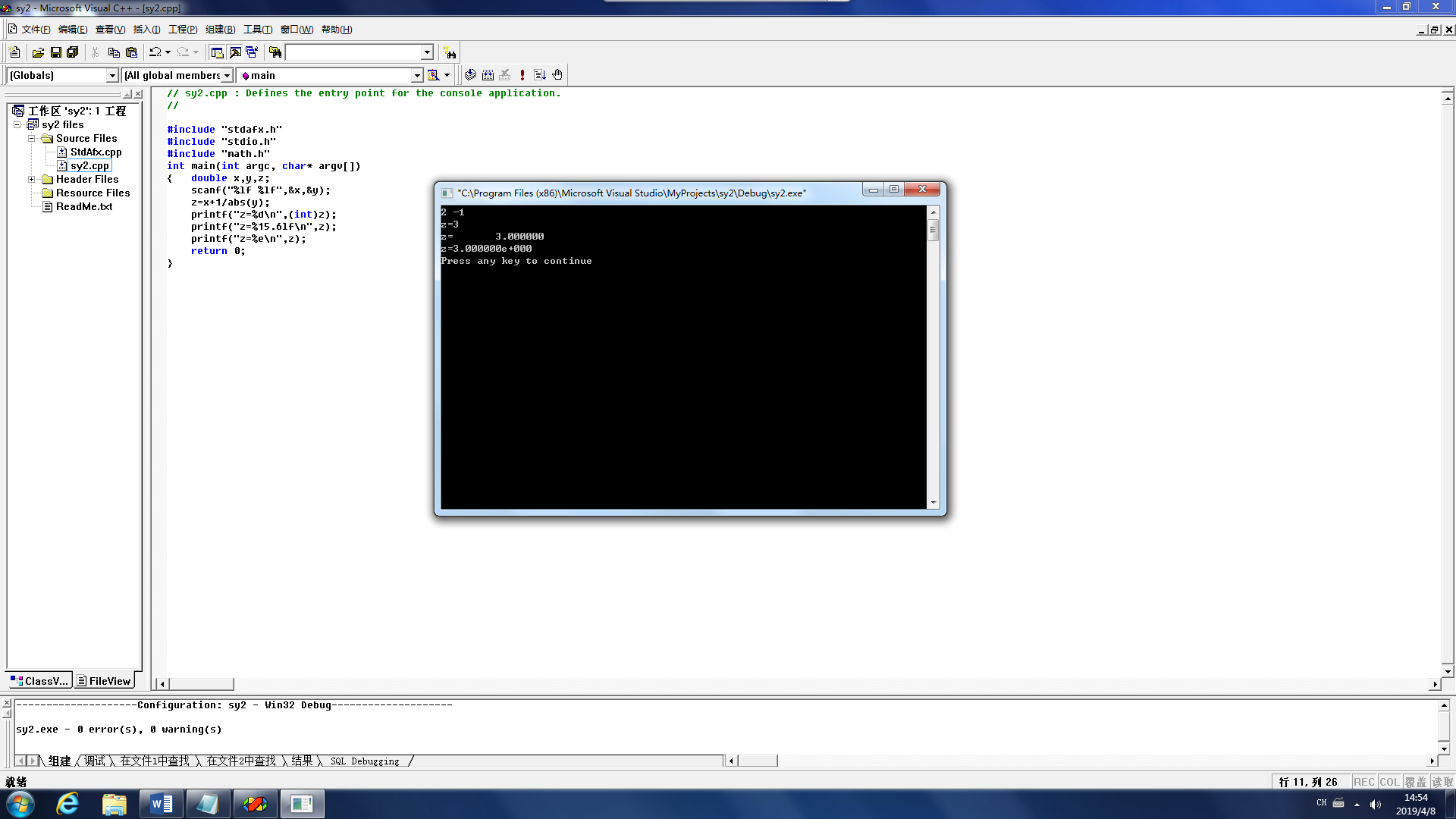代码1:
// 1.cpp : Defines the entry point for the console application.
//
#include "stdafx.h"
#include "stdio.h"
int main(int argc, char* argv[])
{ int a,b,sum;
a = 123;
b = 456;
sum = a+b;
printf("sum is %d\n",sum);
return 0;
}
![]()
代码2:
// 实验1.cpp : Defines the entry point for the console application.
//
#include "stdafx.h"
#include "stdio.h"
int main(int argc, char* argv[])
{ char c1,c2;
c1=97;
c2=98;
printf("c1=%c,c2=%c\n",c1,c2);
printf("c1=%d,c2=%d\n",c1,c2);
return 0;
}
![]()
代码3:
// sy2.cpp : Defines the entry point for the console application.
//
#include "stdafx.h"
#include "stdio.h"
int main(int argc, char* argv[])
{ char c1,c2;
c1=197;
c2=198;
printf("c1=%c,c2=%c\n",c1,c2);
printf("c1=%d,c2=%d\n",c1,c2);
return 0;
}
![]()
代码4:
// sy2.cpp : Defines the entry point for the console application.
//
#include "stdafx.h"
#include "stdio.h"
#include "math.h"
int main(int argc, char* argv[])
{ double x,y,z;
scanf("%lf %lf",&x,&y);
z=x+1/abs(y);
printf("z=%d\n",(int)z);
printf("z=%15.6lf\n",z);
printf("z=%e\n",z);
return 0;
}
![]()








 浙公网安备 33010602011771号
浙公网安备 33010602011771号